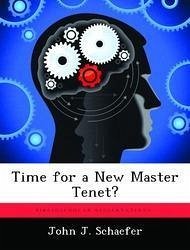This monograph addresses the continued relevance of airpower's master tenet in light of advances in technology. The purpose of this monograph is to examine the doctrinal assumptions used to justify centralized control with decentralized execution. Current Air Force doctrine assumes that this model of employment allows commanders "to achieve effective span of control and to foster disciplined initiative, situational responsiveness, and tactical flexibility." Each of these assertions is explored relative to technological advances in the employment of air and space power and the current trend toward centralized execution. Based on this analysis, this monograph concludes that the location of sufficient understanding of the commander's intent along the chain of command from the JFACC to the airborne asset determines the appropriate level of centralized execution. Successful future leaders will adapt the degree of centralized execution in their command and control model to fit their circumstances.
Hinweis: Dieser Artikel kann nur an eine deutsche Lieferadresse ausgeliefert werden.
Hinweis: Dieser Artikel kann nur an eine deutsche Lieferadresse ausgeliefert werden.








